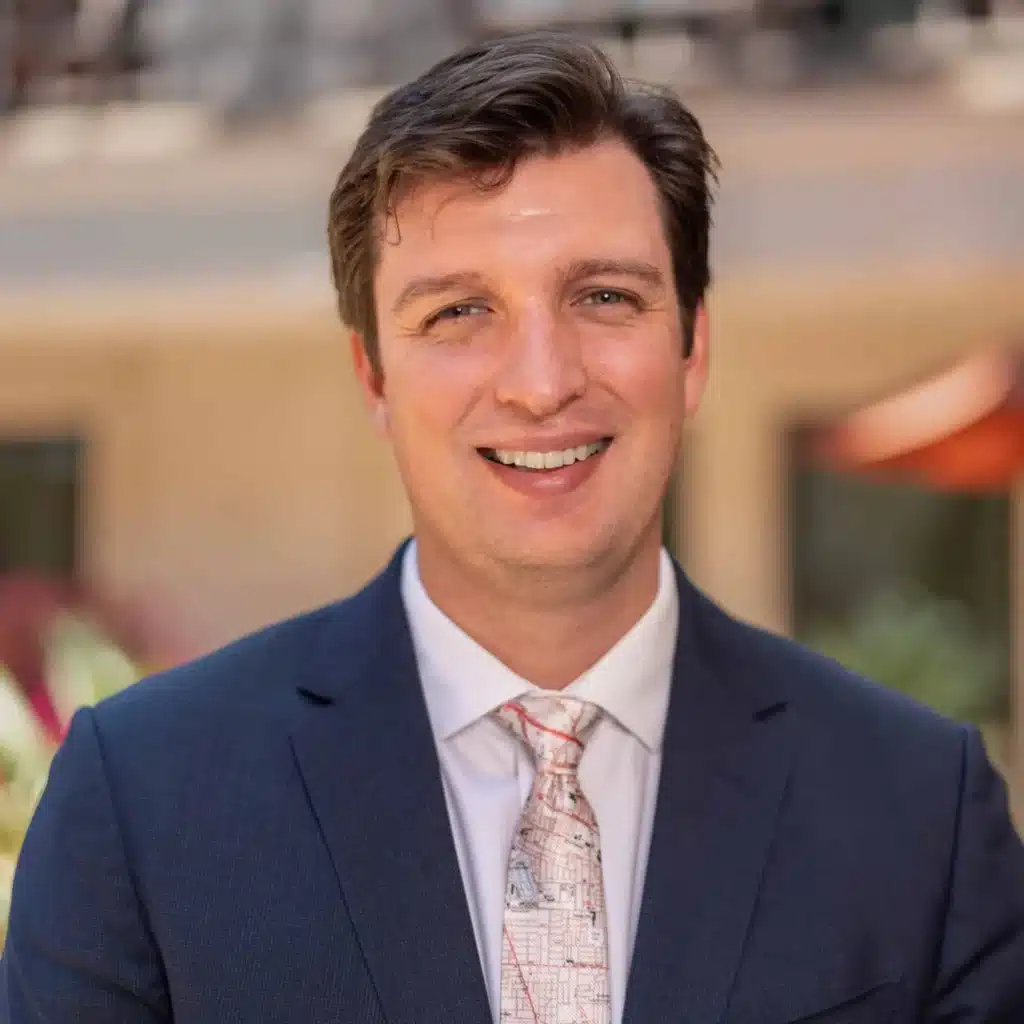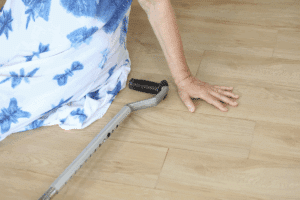Elderly Malnutrition/Dehydration Lawsuit
Malnutrition and dehydration are serious issues affecting elderly residents of care facilities and nursing homes. If you suspect a loved one is being neglected or abused, document your concerns and consult an elderly attorney at Cutter Law. We’ll help you through the legal process, taking action to protect your loved ones.
Learn the most common causes and signs of malnutrition and dehydration, and find out how an elderly malnutrition lawyer at Cutter Law can help you protect the people you love and get them the compensation they deserve.
Common Causes of Malnutrition and Dehydration in Nursing Homes
Malnutrition happens when residents are underfed or not given all the nutrients they need in their diets. The causes of malnutrition vary, but common factors contribute to this issue. Understanding these causes helps you identify and address the problem.
Understaffing
Understaffing in nursing homes can lead to substandard care and a lack of attention to residents’ dietary needs and hydration. Insufficient staffing levels can result in rushed meal preparations, limited assistance during feeding, and decreased monitoring of residents’ nutritional intake.
Inadequate Monitoring
Failure to effectively monitor residents’ food and fluid intake contributes to malnutrition and dehydration. Inadequate monitoring often results from a lack of documentation regarding meals or a failure to understand and fulfill an individual’s dietary needs.
Negligence
Nursing homes may be negligent by failing to provide nutritious meals, adequate nutrition support, and sufficient hydration. Such negligence can involve serving low-quality or unbalanced meals or disregarding individual dietary and hydration needs and restrictions. This can significantly contribute to malnutrition and dehydration among elderly residents.
"*" indicates required fields
Featured Nursing Home Abuse Attorney

Attorney Thomas Reyda brings nearly ten years of civil litigation experience and a strong understanding of both the legal system and nursing home abuse cases.
Cutter Law is a great practice! The lawyers are very knowledgeable and efficient in what they do!
Signs of Malnutrition and Dehydration in the Elderly
Be aware of the signs indicating malnutrition or dehydration in your loved ones. When you recognize the signs of malnutrition, you can take proactive steps to address the underlying causes. In many cases, this includes contacting an elderly dehydration attorney.
Weight Loss
Unintended weight loss is a significant sign of malnutrition in older people. It can result from inadequate nutrient intake and the body’s breakdown of muscle tissue for energy. Sudden or significant weight loss may indicate a severe nutritional deficiency and potential health risks.
Weakness and Fatigue
Malnutrition leads to a general feeling of weakness and persistent fatigue in elderly individuals. Insufficient intake of essential nutrients, such as proteins and vitamins, impact muscle strength and energy levels, resulting in increased fatigue and decreased physical performance.
Dry Skin and Lips
Dehydration and malnutrition often manifest in dry, flaky skin and chapped lips. Inadequate fluid intake and a lack of vital nutrients impair the skin’s ability to retain moisture, leading to dryness, roughness, and visible signs of dehydration.
Frequent Infections
Malnutrition weakens the immune system, making elderly individuals more susceptible to infections. A compromised immune response due to nutrient deficiencies can result in a higher frequency of infections, such as respiratory infections, urinary tract infections, and skin infections.
Confusion or Disorientation
Nutritional deficiencies often affect cognitive function, leading to confusion and disorientation. Malnourished individuals may experience memory, attention, and decision-making difficulties, regularly appearing confused, forgetful, or disoriented in their daily activities.
Decreased Urine Output
Not drinking enough fluid decreases urine output, a common sign of dehydration and potential malnutrition. Deficient hydration leads to reduced urine production, concentrated urine, and an increased risk of kidney problems. Monitoring urine output is important in assessing an individual’s hydration status and identifying potential nutritional issues.
The Risks Related to Nursing Home Malnutrition and Dehydration
The effects of malnutrition and dehydration can be severe, especially for elderly individuals. Some potential dangers and consequences include:
Weakened Immune System
Malnutrition and dehydration compromise the immune system, leaving elderly individuals more susceptible to infections. A weakened immune response makes fighting off common illnesses challenging for the body and increases the risk of developing severe or prolonged health problems.
Malnourished and dehydrated individuals are also more prone to infections. Inadequate nutrient and hydration levels impair the body’s ability to defend against pathogens, making them more susceptible to respiratory, urinary tract, skin, and other infections.
Impaired Wound Healing
Malnutrition and dehydration hinder the wound-healing process. Insufficient nutrients and hydration slow tissue regeneration and compromise the body’s ability to repair damaged skin, leading to delayed wound healing and other health complications. For nursing home residents, this often results in the development and worsening of bedsores.
Muscle Wasting
The body’s lack of essential nutrients may weaken muscle tissue. Malnutrition in nursing homes can result in muscle wasting, leading to a loss of muscle mass, strength, and mobility.
Malnourished individuals are more vulnerable to falls and fractures for the same reason. Weakened muscles, reduced bone density, and impaired balance cause decreased coordination and dizziness. This increases the risk of accidents, falls, and fractures and makes the health consequences of these falls more severe.
Cognitive Decline
Inadequate nutrition and hydration can have a detrimental impact on cognitive function. Malnutrition is associated with cognitive decline, including memory loss, difficulty concentrating, and impaired decision-making abilities. Dehydration can also contribute to cognitive impairment, affecting overall cognitive function and worsening existing cognitive conditions, such as dementia.
How To Handle Suspicion of Elderly Malnutrition or Dehydration
If you suspect malnutrition or dehydration in a loved one residing at a nursing home, take the following steps:
- Document signs and symptoms observed.
- Communicate concerns with the nursing home staff and request a care plan.
- Seek medical attention from health care professionals.
- Consider transferring the resident to another facility if necessary.
- Consult with an experienced elderly dehydration attorney to understand legal options.
Immediate action is important when you suspect issues, as waiting can lead to serious consequences.
I always recommend that people just follow their gut. You’ll know when someone that you really love and care about well is changing and something is happening that’s not right.

Margot Cutter,
Partner at Cutter Law
Resources for Families Dealing With Nursing Home Abuse
After you have gathered information about potential nursing home abuse, consider contacting the California Department of Aging, which provides information and resources for elderly individuals and their families.
You can also contact the National Consumer Voice for Quality Long-Term Care, which offers advocacy and resources for nursing home residents and their families.
How an Elderly Dehydration Attorney Can Help You
You have legal rights if you suspect nursing home malnutrition or dehydration. Victims and their families can pursue civil lawsuits to hold nursing homes responsible for their negligence.
Who Can File a Nursing Home Lawsuit?
Family members or legal representatives of the affected resident can file a nursing home lawsuit on their behalf, seeking justice for the harm caused. An elderly malnutrition lawyer will assist you through this legal process. California’s statute of limitations for filing an elder abuse claim is two years from the date the injury is discovered.
What Damages Can You Seek in a Nursing Home Lawsuit?
Pursued damages in a nursing home lawsuit include medical expenses, pain and suffering, emotional distress, and punitive damages, if applicable.
Attorneys Brooks and Margot Cutter obtained a $485,000 settlement for elder abuse in a skilled nursing facility.
Attorneys Brooks and Margot Cutter obtained a policy limits settlement of $914,506.51 for abuse of a dependent adult at a residential care facility.
401 Watt Avenue Suite 100 Sacramento, CA 95864
1901 Harrison Street Suite 910 Oakland CA 94612
51 E St Santa Rosa, CA 95404
Turn to Cutter Law Elderly Malnutrition Lawyers for Experienced Legal Representation
If your loved one has suffered from malnutrition or dehydration in a California nursing home, take action to protect their well-being. Recognizing the signs, documenting concerns, seeking medical attention, and consulting with an experienced elderly malnutrition lawyer can help you seek justice and ensure the safety of your loved one.
Cutter Law, a leading California elder abuse law firm, specializes in cases involving nursing home abuse, malnutrition, and dehydration. Our experienced attorneys understand the complex legal landscape and work diligently to protect the rights of older people. We offer a free consultation to evaluate your case and provide guidance on the best course of action. Contact our legal team at Cutter Law today.
"*" indicates required fields
Start with a free consultation. We listen to what happened, how it’s affected your life, and what you need to move forward.
You’ll have a direct line to our attorneys. We keep communication open and ensure you always know what’s happening with your case.
From day one, we go all in—gathering evidence, negotiating with insurers, and preparing for trial if needed. You pay nothing unless we win compensation for you.

Sexual Elder Abuse Lawsuit Elder sexual abuse is a serious crime against senior citizens, especially among those residing in nursing

Nursing Home Fall Lawsuit When exploring legal options after a loved one’s fall in a California nursing home, having the

Bedsore Lawsuit Nursing home residents can develop bedsores if the facility’s staff fails to move and reposition them regularly. If
As a family run California law firm we pride ourselves in providing every client personal attention and representation. The outstanding results we have gotten for our fire clients are a direct result of our commitment to understanding and presenting all aspects of their case.
Hear from our previous clients about the relationships we build together.
I was so happy with my experience at Cutter Law. Margot’s attention to the details of my situation and their personal service were impressive and very much appreciated. I would highly recommend them.
A fantastic, professional law firm who are extremely well-versed in the law and go above and beyond to achieve results. I highly recommend Cutter Law to all.

Brooks has a long-established, respected reputation as a skilled trial attorney and a record of proven success.
